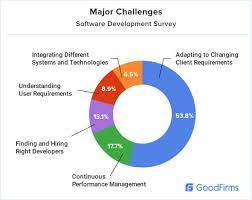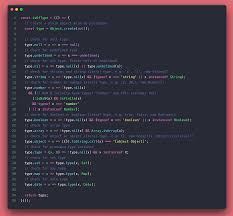Exploring the Transformative Power of Technological Innovation
The Impact of Technological Innovation on Society
Technological innovation has revolutionized the way we live, work, and interact with the world around us. From the invention of the wheel to the development of artificial intelligence, technology has continuously shaped human civilization and propelled us into the future.
One of the key benefits of technological innovation is its ability to improve efficiency and productivity. Through automation and digitalization, tasks that once took hours or days to complete can now be done in a matter of minutes. This has not only accelerated economic growth but also freed up time for individuals to focus on more creative and strategic endeavors.
Moreover, technological innovation has enhanced communication and connectivity on a global scale. The internet, smartphones, and social media platforms have made it easier for people to stay connected with one another regardless of geographical boundaries. This interconnectedness has facilitated knowledge sharing, cultural exchange, and collaboration among individuals from diverse backgrounds.
Additionally, technological innovation has played a crucial role in addressing societal challenges such as healthcare, education, and environmental sustainability. Breakthroughs in medical technology have led to improved treatments and increased life expectancy. Educational tools powered by technology have made learning more accessible and engaging for students worldwide. Furthermore, innovations in renewable energy sources have paved the way for a more sustainable future.
However, with great power comes great responsibility. As technology continues to advance at an exponential rate, it is essential to consider its ethical implications and potential risks. Issues such as data privacy, cybersecurity threats, and job displacement due to automation require careful consideration and proactive measures to mitigate negative consequences.
In conclusion, technological innovation holds immense potential to shape a brighter future for humanity. By harnessing the power of technology responsibly and ethically, we can leverage its benefits to create a more inclusive, sustainable, and prosperous society for generations to come.
5 Essential Tips for Fostering Technological Innovation
- Stay updated on the latest technological trends and advancements.
- Encourage a culture of creativity and experimentation within your team or organization.
- Collaborate with other professionals or organizations to leverage different expertise and resources.
- Invest in research and development to drive continuous innovation.
- Embrace failure as a learning opportunity and be open to trying new approaches.
Stay updated on the latest technological trends and advancements.
To stay ahead in the ever-evolving landscape of technological innovation, it is crucial to remain informed and engaged with the latest trends and advancements. By staying updated on emerging technologies, one can leverage new opportunities, adapt to changing market demands, and drive innovation within their own endeavors. Continuous learning and exploration of cutting-edge developments in the tech industry not only enhance one’s knowledge but also empower them to make informed decisions that can lead to greater success and competitiveness in today’s fast-paced digital world.
Encourage a culture of creativity and experimentation within your team or organization.
Encouraging a culture of creativity and experimentation within your team or organization can be a catalyst for technological innovation. By fostering an environment where team members feel empowered to think outside the box, explore new ideas, and take calculated risks, you create opportunities for groundbreaking solutions to emerge. Embracing creativity and experimentation not only fuels individual growth and satisfaction but also cultivates a spirit of innovation that drives continuous improvement and keeps your organization at the forefront of technological advancements.
Collaborate with other professionals or organizations to leverage different expertise and resources.
Collaborating with other professionals or organizations is a valuable strategy to enhance technological innovation. By leveraging diverse expertise and resources, teams can tackle complex challenges more effectively and develop innovative solutions that may not have been possible otherwise. Through collaboration, individuals can benefit from fresh perspectives, specialized knowledge, and complementary skills, leading to more robust and successful outcomes in the ever-evolving landscape of technology.
Invest in research and development to drive continuous innovation.
Investing in research and development is a crucial strategy to drive continuous innovation in the realm of technology. By allocating resources to explore new ideas, experiment with cutting-edge technologies, and push the boundaries of what is possible, organizations can stay ahead of the curve and create groundbreaking solutions that meet evolving market demands. Through a commitment to R&D, companies can foster a culture of creativity and discovery, leading to the development of innovative products and services that propel them towards sustained growth and success in today’s fast-paced technological landscape.
Embrace failure as a learning opportunity and be open to trying new approaches.
Embracing failure as a learning opportunity and being open to trying new approaches are essential attitudes in the realm of technological innovation. By acknowledging that failure is a natural part of the innovation process, individuals and organizations can cultivate resilience, adaptability, and a growth mindset. Through experimentation and exploration of new ideas, innovators can uncover unexpected solutions, refine their strategies, and ultimately drive progress in the ever-evolving landscape of technology.





